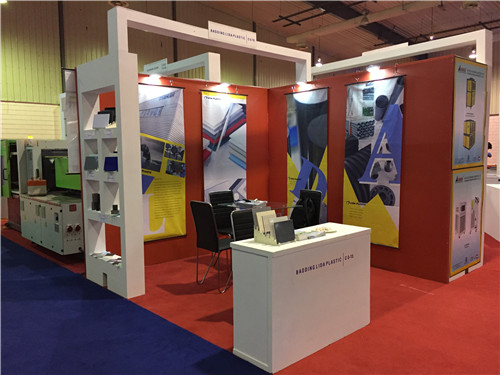ഡിസം . 24, 2024 10:26 Back to list
hdpe pipe connector
Understanding HDPE Pipe Connectors Key Components in Modern Plumbing
High-Density Polyethylene (HDPE) pipe connectors are essential components in various plumbing and piping applications. As industries increasingly turn to HDPE for its superior properties, understanding the function and benefits of HDPE pipe connectors becomes paramount for engineers and contractors alike. This article delves into the significance of HDPE pipe connectors, their types, applications, and advantages.
What is HDPE?
Before we explore pipe connectors, it's essential to understand HDPE itself. High-Density Polyethylene is a thermoplastic polymer known for its high strength-to-density ratio. It is resistant to impact, chemicals, and UV radiation, making it suitable for a wide range of applications, including water supply, sewage, gas distribution, and agricultural irrigation.
The Importance of Pipe Connectors
Pipe connectors play a crucial role in the installation and maintenance of any piping system. They are vital for enabling the joining of pipes, allowing for the efficient transport of fluids while maintaining system integrity and functionality. With HDPE becoming a popular choice for piping solutions, HDPE pipe connectors have gained prominence due to their compatibility with HDPE materials and their performance under various conditions.
Types of HDPE Pipe Connectors
HDPE pipe connectors come in various forms, each tailored to specific applications and requirements. Here are some common types
1. Butt Fusion Connectors This is one of the most widely used methods for connecting HDPE pipes. In butt fusion, two pipe ends are heated and then pushed together under pressure to create a strong joint. This method is ideal for creating a continuous pipeline with minimal leakage potential.
2. Electrofusion Connectors Electrofusion involves the use of electrical current to heat and melt the ends of the pipes to be joined. A special electrofusion fitting is placed between the two pipe ends, and when current is applied, it welds them together. This method is particularly useful where space is limited, and precise connections are required.
3. Mechanical Connectors These are fittings that use clamps or other mechanical means to hold the pipes together. Mechanical connectors are versatile and can be used in various sizes and configurations. They are often favored for repairs or temporary connections.
4. Flange Connectors Flange connectors involve joining pipes equipped with flanges, which are flat surfaces that are bolted together. This method is advantageous for systems that require regular disassembly and maintenance, providing easy access to the piping system.
Applications of HDPE Pipe Connectors
hdpe pipe connector

The versatility of HDPE pipe connectors allows them to be used in numerous applications
- Water Supply HDPE pipes and connectors are widely used in municipal water supply systems due to their corrosion resistance and ability to handle high pressures.
- Wastewater Management In sewage systems, HDPE connectors ensure leak-free jointing, which is crucial in preventing contamination
.- Gas Distribution The flexibility and durability of HDPE pipe connectors make them suitable for natural gas distribution systems, where safety and reliability are paramount.
- Irrigation Systems Agricultural applications often utilize HDPE piping and connectors due to their resistance to wear and weather elements.
Advantages of Using HDPE Pipe Connectors
1. Durability HDPE connectors are built to last, offering a long service life with minimal maintenance requirements.
2. Leak Prevention The methods used to connect HDPE pipes, such as butt fusion and electrofusion, create joints that are incredibly robust and leak-resistant.
3. Flexibility HDPE connectors allow for the bending and shaping of piping systems, accommodating various installation requirements in tight spaces.
4. Chemical Resistance These connectors resist a wide range of chemicals, making them suitable for various industrial applications.
5. Ease of Installation Many HDPE connectors are designed for straightforward installation, saving time and labor costs.
Conclusion
In summary, HDPE pipe connectors are indispensable in modern piping systems, offering durability, chemical resistance, and a variety of connection methods suited for different applications. As industries and municipalities continue to rely on HDPE for their piping needs, understanding the role of HDPE pipe connectors will enhance system efficiency and reliability. Whether for water supply, wastewater management, or agricultural irrigation, these connectors are key in delivering safe and effective solutions in fluid transport.
-
Durable PP Rigid Sheet: Lightweight, Chemical Resistant Solutions
NewsAug.21,2025
-
PVC Grey Sheet for Extraction: Chemical Resistant & Durable
NewsAug.19,2025
-
Durable PVC Pipe Fittings for Plumbing & Irrigation Needs
NewsAug.18,2025
-
HDPE Steel Belt Reinforced Spiral Corrugated Pipe | High Strength
NewsAug.17,2025
-
HDPE Pipe Fittings: Durable, Leak-Proof Solutions
NewsAug.16,2025
-
Premium CPVC Sheet: High-Temp & Chemical Resistant Solutions
NewsAug.15,2025

